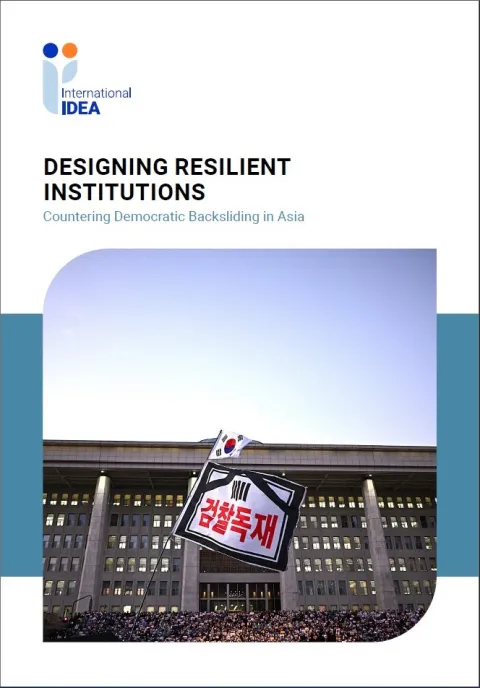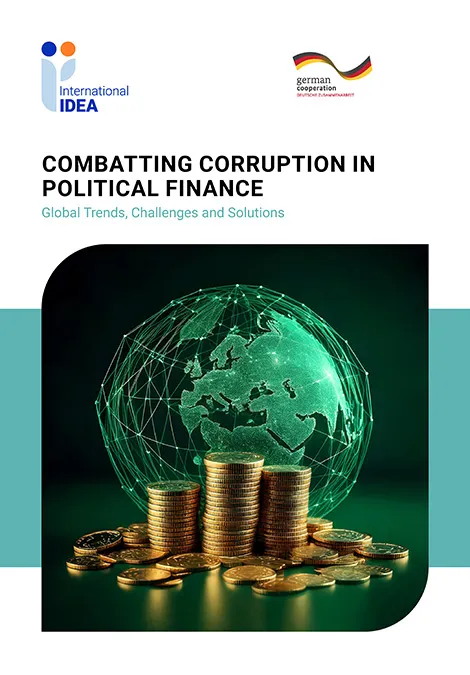In our first episode of the new season of Peer-to-Peer, we speak with Sarah Birch and Jeff Fischer to learn more about the effect of wildfires on elections in California. The conversation is based on an International IDEA case study that focuses on the impact of wildfires on the 2016 and 2018 electoral cycles but also on the steps taken by election administrators to protecting elections.
Search
Region
Country
Type
This Report provides a study of the ethnic composition of Myanmar’s subnational units together with an analysis of the historical evolution of the administrative units that existed under the 2008 Constitution.
La política latinoamericana abrió su periodo electoral 2022 en Costa Rica y lo cerró en Brasil, teniendo al medio la presidencial colombiana y el
Transparency of politics, particularly political finance, is a cornerstone of every democratic system.
Transparency in politics—in particular with regard to political finance—lies at the core of every democracy. The availability of accessible, detailed information about the funding of political parties and candidates enables scrutiny by civil society organizations and the wider public, and ensures that all political actors can be held accountable.
The participants of the first Constitution Academy and representatives from the European Union and International IDEA Member States celebrated the completion of the first constitution academy organized by International IDEA Sudan’s Programme on 18 November 2022.
En las últimas elecciones en Estados Unidos y Brasil, los derechos de las mujeres han sido cruciales, definiendo el voto de un importante sector de la ciudadanía.
Excellencies,
International IDEA shared with electoral authorities, civil society, and political actors the main elements of the current state of political financing in Paraguay, as revealed by a qualitative study carried out this year.
Este artículo también está disponible en español.
IDEA Internacional compartió con autoridades electorales, la sociedad civil y actores políticos las principales características del estado actual del financiamiento político en Paraguay, según las revela un estudio cualitativo realizado este año.
This news article is also available in English.
Transforming Constitution-building
The 2022 Fiji general election, for 55 seats in the Parliament, will take place on 14 December 2022. So far 316 provisional candidates have been named from 8 of the 9 political parties of which 55 are women—17 per cent of the total number. The figure is likely to increase with more provisional names expected to be announced soon. A political party may nominate up to 55 candidates by midday of 14 November 2022.
International IDEA Sudan’s Programme launched the highly anticipated Constitution Academy. The academy is an intensive, interactive, residential academic programme, with a mixture of lectures, seminars, Q&A, exercises and simulations.
Las elecciones internas simultáneas de las agrupaciones políticas en Paraguay se llevarán a cabo el 18 de diciembre, previas a las elecciones generales y departamentales de abril de 2023. Su preparación ha concentrado la atención de la agenda política.
On 25 October 2021, following months of political unrest, the military staged a coup on the transitional order and took power—dissolving the civilian government, deposing the Prime Minister, and imposing a state of emergency.
At home in the Asia-Pacific region, Australia lives alongside some of the world's most populous and diverse democracies. As we all emerge from two years of acute COVID-19 restrictions, some things look a little different in our neighbourhood.
This season, International IDEA will explore the effects of climate change in the form of extreme weather events, as well as other natural hazards, that cause both slow and rapid onset disasters, on the implementation of elections. Natural hazards can cause elections to be postponed, impact electoral operations, affect campaigns, and voter turnout.
Myanmar’s military junta has sought to justify the 1 February 2021 coup d’état with dubious allegations of electoral fraud surrounding the 8 November 2020 general elections. The State Administration Council perpetuates this narrative of electoral fraud and claims to be preparing fresh elections, including by making changes to election and political party laws, implementing a new electoral system, and updating the voter list.
International IDEA held a technical training on electoral risk management and a knowledge sharing session around International IDEA Election Risk Management (ERM) Tool in preparation for the upcoming election in Sierra Leone.


